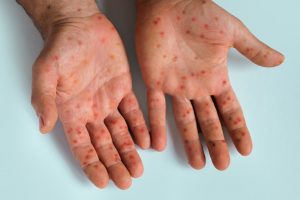Update 2018 influenza season
The 2018 influenza season, which started in the first week of May continues. On average the duration of influenza season in South Africa is 13 weeks, but can be as short as 7 weeks and as long as 25 weeks.
Since the beginning of May a total of 536 influenza cases have been diagnosed, as part of influenza surveillance programmes (outpatient and hospitalised cases) conducted by the National Institute for Communicable Diseases (NICD). The majority of cases have been influenza A(H1N1)pdm09 which was detected in 523 (97.6%) patients. This influenza strain (which is sometimes incorrectly referred to as “swine flu”) emerged globally in 2009 during the pandemic, and for the past eight years has been identified on an annual basis during the influenza season. Influenza H1N1 has behaved like any strain of seasonal influenza. Patients infected with this strain should be treated like any other seasonal influenza case.
The NICD monitors the progression and severity of the influenza season using data collected at surveillance sites throughout the country to provide real-time information on season progression. During the influenza season it is expected to see increases in numbers of individuals experiencing mild and more severe respiratory illness as a result of influenza circulation. The 2018 influenza season is currently a moderate season when compared to previous years. The severity of a season is a result of a combination of factors including the circulating influenza strains, previous immunity in the population and spectrum of underlying illnesses and age distribution of the population
Influenza is usually an uncomplicated illness, which is characterised by sudden onset of constitutional and respiratory symptoms such as fever, myalgia, cough, sore throat, rhinitis and headache. Influenza typically resolves in 3-7 days in the majority of individuals. In a proportion of patients, (pregnant women, individuals with pre-existing chronic illnesses (e.g. diabetes, asthma, HIV), the very young and elderly), influenza may be associated with more severe illness or complications, these complications include viral pneumonia, secondary bacterial or viral infections (including pneumonia, sinusitis and otitis media), and exacerbation of underlying illnesses (e.g. pulmonary and cardiac illness). Every year there are cases of severe and complicated influenza in otherwise healthy persons, however, these are rare events.
Vaccination is the most effective strategy to prevent influenza. Getting the flu vaccine can reduce flu illnesses, visits to the clinics or to doctors rooms, missed work and school due to flu, as well as prevent flu-related hospitalizations.
Vaccinating people with higher risk of severe flu may prevent or reduce complications Vaccines should be given sufficiently early to provide protection for the influenza season, although it is never too late to vaccinate as long as there is still influenza circulation in the community. The influenza vaccine that is licensed for use in South Africa for 2018 covers three of the common influenza strains including influenza A(H1N1)pdm09).
It is also essential to practice good hygiene by properly and frequently washing hands and protecting coughs and sneezes (coughing or sneezing into a tissue or an elbow) to help prevent the spread of seasonal influenza. People who have flu-like symptoms should stay at home to avoid infecting others, and should avoid sporting activities.
Detailed recommendations on target groups, dosages and contraindications for the 2018 can be accessed at https://www.nicd.ac.za/wp-content/uloads/2017/03/Influenza-guidelines-rev-23-April-2018,pdf.




